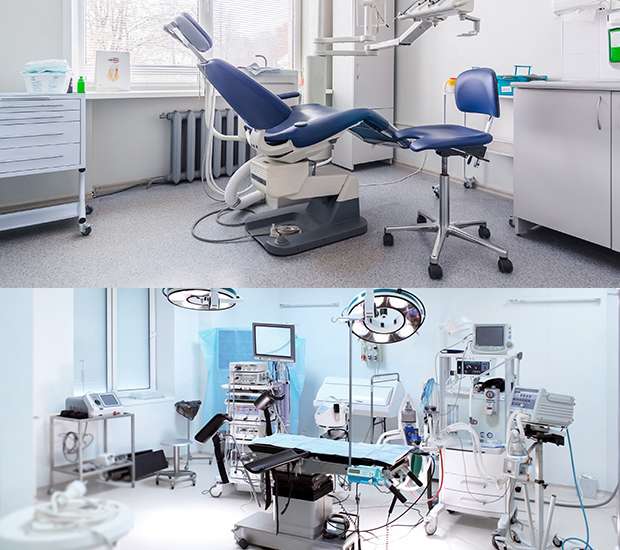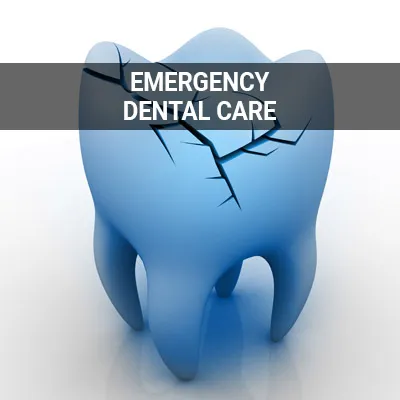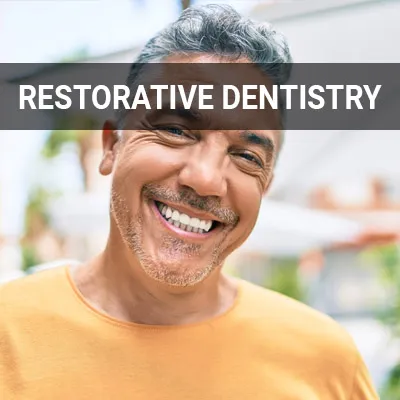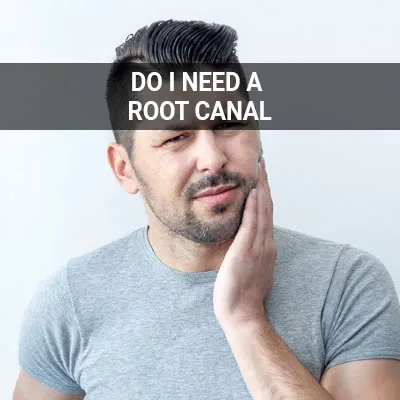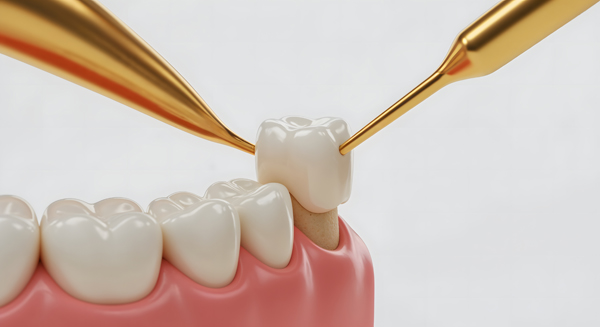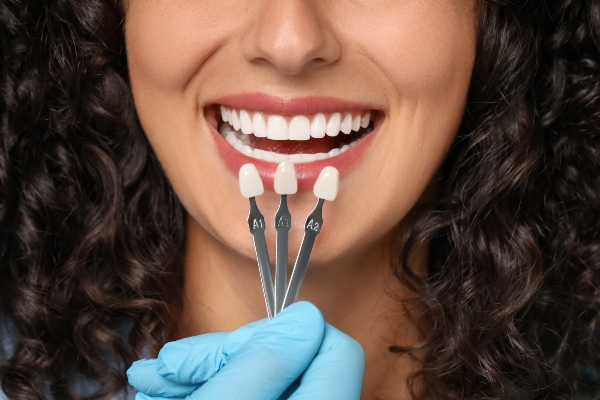Emergency Dentist vs. Emergency Room Prairieville, LA
During a dental emergency, patients need immediate care. Prompt treatment can prevent permanent tooth loss or life-threatening complications. In addition, emergency dental care resolves issues like severe pain, heavy bleeding, and much more.
Emergency dentists are available at GBR Dental in Prairieville and the surrounding area. Our team provides on-the-spot care to patients with urgent dental issues. We offer comprehensive follow-up care to protect your oral health. Call us at (225) 754-4422 to learn more.
When To Go Straight to the ER
Per the American Dental Association, the number of dental-related ER visits nearly doubled, from 1.1 million to 2.1 million, between 2000 and 2010. Despite the increase in numbers, there are actually very few dental-related concerns for which patients should head immediately to their hospital's ER department.
When a Patient Experiences Trauma to the Face
If a blow to the face or accident results in chipped, cracked, or lost teeth, an emergency dentist should be equipped to handle the situation. However, when the accident or incident causes extensive facial trauma, such as broken bones, puncture wounds, lacerations, or damage to the soft tissues, it may be a good idea for the injured party to seek medical care before emergency dental care. Emergency dentists may have the capacity to restore oral health, but most cannot set broken bones, sew up lacerations, or perform other extensive medical procedures.
When an Emergency Dentist Is Unavailable
If someone experiences a dental emergency aside from those mentioned above, and if an emergency dentist is not immediately available to handle it, then the patient should head to the hospital. Though ER personnel may not be able to treat the underlying condition, they can help the patient manage the pain and other symptoms until an emergency dentist becomes available.
“There are actually very few dental-related concerns for which patients should head immediately to their hospital’s ER department.”
When To Call a Local Emergency Dentist First
In the majority of oral health emergencies, patients should contact their emergency dentists before heading to the ER. In addition to helping patients manage symptoms, dental professionals can treat underlying conditions and ensure they do not grow worse. For individuals who are not sure what constitutes a "dental emergency" as opposed to a non-urgent yet uncomfortable situation, the ADA provides guidance. The most common situations that characterize a dental emergency are the following:
- Bleeding that will not stop
- Infection accompanied by swelling or pain
- Painful swelling around or in the mouth, with or without infection
- Chipped, broken, or dislocated teeth
- Abscess with localized pain and swelling and no signs of complications
- Loss of a permanent or temporary restoration
Other problems that may necessitate immediate but not emergency care include broken, irritating, or malfunctioning dentures; oral sutures; and bent or broken orthodontic appliances or wires.
“In addition to helping patients manage symptoms, dental professionals can treat underlying conditions and ensure they do not grow worse.”
What Emergency Dental Treatment Entails
Emergency dental treatment looks different for everyone, as no two dental issues are exactly the same. However, some occurrences are more common than others, which means there are certain treatments emergency dentists perform more often than others. Examples of frequently performed emergency dental procedures include:
- Tooth extraction
- Tooth replacement (placing a knocked-out tooth back in the socket)
- Filling or crown replacement
- Tooth restoration
Regardless of what brings a patient to an emergency dentist's office, dental teams typically thoroughly clean the mouth and around the affected area, take X-rays of the mouth, and focus on pain and infection management.
“There are certain treatments emergency dentists perform more often than others.”
Check out what others are saying about our dental services on Yelp: Emergency Dentist vs. Emergency Room in Prairieville, LA
Oral Infections
If the patient has an abscess, the dentist must remove the source of the infection. Often, the dentist will perform a root canal. During these procedures, the dentist drills into the tooth and drains the pus. The dentist may also need to pull the tooth the clear the infection. Afterward, patients receive antibiotics to help clear up the infection.
Some patients may try to "wait out" their symptoms, but oral infections seldom clear up on their own. Instead, infections usually worsen and spread to other body parts. Untreated infections can result in life-threatening health problems.
Seek treatment right away if you experience any of the following symptoms:
- Chills
- Difficulty swallowing
- Fever
- Foul taste in the mouth
- Inflamed lymph nodes
- Severe oral pain
- Swollen cheeks or jaw
“Untreated infections can result in life-threatening health problems.”
Questions Answered on This Page
Q. When should I go straight to the emergency room?
Q. When should I call an emergency dentist first?
Q. What does an emergency dental treatment entail?
Q. How are oral infections treated?
Q. What kind of follow-up care will I receive?
People Also Ask
Q. What steps should happen after chipping a tooth?
Q. What are the symptoms of a cracked tooth?
Q. What are some of the signs indicating a need for tooth extraction?
Follow-Up Care
After a dental emergency, patients can expect at least one follow-up visit. During this checkup, the dentist examines the patient's mouth. They may ask about the patient's symptoms and pain level. Sometimes, the dentist also performs an X-ray. Follow-up visits ensure that treatment was successful. If the patient needs further care, the dentist can adjust their treatment plan.
Some dental emergencies can take time to resolve. For example, a dentist may perform several procedures to repair damage caused by a severe injury or accident. If the emergency resulted in tooth loss, it might also take time to arrange for a replacement tooth. The dentist can provide further details about your treatment timeline.
“After a dental emergency, patients can expect at least one follow-up visit.”
Frequently Asked Questions
Q. What is a dental emergency?
A. Dental emergencies may involve severe pain, heavy oral bleeding, or tooth damage. Sometimes, patients find it hard to determine whether they are experiencing an emergency. When in doubt, reach out to an emergency dentist or doctor for guidance. Always seek care for sudden or worsening tooth pain.
Q. What should I do if I need emergency dental care?
A. If you experience a dental emergency, call your dentist. The office team can determine whether you need to visit the ER. If the dentist can handle the problem in-office, the team can arrange a same-day appointment.
Q. What should I do if I cannot reach my dentist during a dental emergency?
A. If an emergency happens during evenings, weekends, or holidays, go straight to the ER. Do not wait until your dental office reopens. Delaying emergency dental care may result in life-threatening health complications or permanent tooth damage.
Q. What dental emergencies always require an ER visit?
A. Dental emergencies may occur after a head injury. If you suffer a blow to the head, visit the ER for a full exam. Head injuries may seem minor at first, but they can trigger internal bleeding or brain inflammation. See a doctor for a complete screening. Then contact your emergency dentist after you leave the hospital.
Q. What should I do if I have injured my gums, cheeks, or tongue?
A. First, stop the bleeding immediately. You may do so by applying light pressure to the injury site with a cold compress. Then, contact us right away.
Dental Emergency Terminology
Call GBR Dental in the Event of an Emergency
Dental emergencies can happen at any time. Know you can rely on our team when they do. Call (225) 754-4422 for the immediate care you need when one does.
Helpful Related Links
- American Dental Association (ADA). Glossary of Dental Clinical Terms. 2025
- American Academy of Cosmetic Dentistry® (AACD). Home Page. 2025
- WebMD. WebMD’s Oral Care Guide. 2025
About our business and website security
- GBR Dental was established in 2019.
- We accept the following payment methods: American Express, Cash, Check, Discover, MasterCard, and Visa
- We serve patients from the following counties: Ascension Parish, Iberville Parish, East Baton Rouge Parish and Livingston Parish
- We serve patients from the following cities: Prairieville, Galvez, Gonzales, St. Gabriel, Baton Rouge, Port Vincent, St. Amant, and St. George
- National Provider Identifier Database (1598893976). View NPI Registry Information
- Healthgrades. View Background Information and Reviews
- Norton Safe Web. View Details
- Trend Micro Site Safety Center. View Details
Back to top of Emergency Dentist vs. Emergency Room
